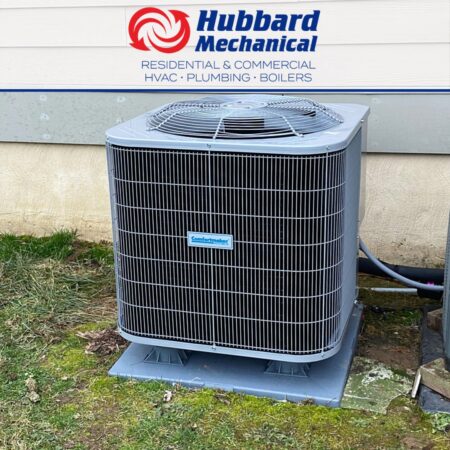When it comes to maintaining a comfortable indoor environment, hvac lexington ky plays a crucial role. Whether it’s cooling the air on hot summer days or heating your home during the chilly winter months, the right system ensures that you stay comfortable year-round. However, like any mechanical system, HVAC units are prone to problems that can disrupt their efficiency and performance. In this blog, we will explore some of the most common HVAC problems homeowners face, including issues with insulation, and provide practical solutions to address and prevent them. Understanding these issues and knowing how to troubleshoot them can help you keep your HVAC Lexington KY system running smoothly and save you from costly repairs.

Understanding HVAC Problems
Before diving into the specific problems, it’s essential to have a basic understanding of how the world of HVAC works. HVAC stands for heating, ventilation, and air conditioning, and it refers to the system responsible for controlling the temperature, humidity, and purity of the air in an enclosed space, ensuring thermal comfort and acceptable indoor air quality. It is a complex mechanical system that consists of various components, including a furnace or heat pump, air conditioning unit, air handler, ductwork, and thermostat. Maintaining an optimum balance of temperature, humidity, and air quality is vital for comfort and overall well-being. When any of these components face issues, it can lead to HVAC problems that require attention and resolution.
Common Signs of HVAC Problems
Recognizing the signs of HVAC problems can help you address issues early, preventing further damage and ensuring optimal system performance. Here are some common signs that indicate potential HVAC problems:
- Unusual Noises or Odors: If you notice strange sounds, such as rattling, banging, or hissing, coming from your HVAC Lexington KY system, it could be a sign of mechanical issues. Similarly, foul odors, such as musty or burning smells, can indicate underlying problems.
- Inconsistent Temperatures: If different rooms in your house have varying temperatures, it may indicate airflow or thermostat issues. Uneven cooling or heating can result in discomfort and reduced energy efficiency.
- Increased Energy Bills: If you notice a sudden spike in your energy bills without any changes in your usage, it might be due to an inefficient HVAC system. Energy efficiency can decrease when components are not functioning optimally.
- Frequent Cycling On and Off: Rapid and frequent cycling of the HVAC system, where it turns on and off frequently, can indicate issues with temperature control, airflow, or thermostat function. This continuous cycling may result in high energy consumption and uneven heating or cooling.
- Poor Air Quality: Indoor air quality is crucial for a healthy living environment. If you or your family members experience persistent allergy-like symptoms, such as sneezing, coughing, or itchy eyes, it could be a sign of poor air quality caused by HVAC system problems.
Being aware of these common signs of HVAC problems allows you to take prompt action, preventing further damage and ensuring comfortable indoor living conditions.
Factors Influencing HVAC Problems
Factors such as the age of the system, lack of regular maintenance, and incorrect installation can influence HVAC issues significantly. The system’s age plays a crucial role in its performance, affecting efficiency and reliability. Moreover, neglecting routine maintenance can lead to malfunctions and breakdowns. Incorrect installation, including improper sizing or faulty connections, can also result in various HVAC problems over time, especially in cold climates. Understanding these factors, particularly in relation to cold climates, can help address and prevent common HVAC issues effectively.
Age of the System
With HVAC systems, older units are susceptible to increased breakdowns, demanding frequent maintenance. Over time, the efficiency of these systems declines, urging upgrades for improved energy use efficiency. Evaluating the system’s age is vital for effective preventive maintenance strategies. Upgrading to newer models can mitigate the risks associated with aging units and provide better performance overall.
Lack of Regular Maintenance
Neglecting regular maintenance for your HVAC system can be costly. It leads to higher energy consumption, potential breakdowns, and poor indoor air quality. Routine checks, component cleaning, and proper lubrication are essential to ensure HVAC efficiency and longevity. Avoid the pitfalls of inadequate maintenance by scheduling regular servicing to maintain indoor comfort and lower repair costs. Don’t underestimate the impact of neglect on your HVAC system’s performance and lifespan.
Incorrect Installation
Improper installation impacts HVAC system efficiency, leading to ineffective heating or cooling. Inaccurately sized units create temperature inconsistencies in your space. Substandard setup can void warranties and result in frequent malfunctions. Opting for professional installers guarantees proper configuration and peak performance.
How to Troubleshoot Basic HVAC Problems?
What are some effective methods for troubleshooting basic HVAC problems? Explore resetting the circuit breaker, checking thermostat settings, and replacing air filters to address common issues.
Resetting the Circuit Breaker
Resetting the circuit breaker is essential for restoring power to the system, especially when a tripped breaker causes the HVAC to halt. This simple action can address power-related issues effectively. Tripped breakers serve as warning signs for underlying electrical problems that require prompt attention. Regularly monitoring and resetting breakers play a critical role in preventing potential system failures.
Checking the Thermostat Settings
To ensure optimal heating or cooling, verifying and adjusting thermostat settings is crucial. Proper programming maintains desired indoor temperatures, enhancing energy efficiency. Incorrect settings can lead to HVAC malfunctions, affecting comfort levels. Regularly monitoring and correcting thermostat configurations help prevent issues and ensure a comfortable environment.
Replacing Air Filters
To enhance air quality and system efficiency, regular replacement of air filters is crucial. Clogged filters hinder airflow, causing strain on the HVAC system. Dirty filters not only impact indoor air quality but also affect system performance. By replacing filters and allowing for the exchange of stale air for fresh air, dust accumulation in ducts is prevented, safeguarding HVAC components. Proper maintenance of filters is paramount for promoting healthy indoor air and ensuring the longevity of the system.
When to Call a Professional?
Identifying Serious HVAC Problems
Serious HVAC problems manifest as unusual noises, odors, or inconsistent heating/cooling, signaling underlying issues. Ignoring these signs can lead to system failure and costly repairs. Refrigerant leaks, compressor malfunctions, or electrical failures require professional intervention. Early identification of serious issues prevents safety risks and major breakdowns, ensuring system reliability and efficiency. Prompt attention to these issues avoids disruptions and maintains a comfortable indoor environment.
Deciding Between Repair and Replacement
When faced with HVAC issues, evaluating the damage is crucial for deciding between repair and replacement. Factors such as system age, efficiency, repair expenses, and breakdown frequency play a significant role in this decision-making process. Opting for a new system might prove more cost-effective in the long term, especially when considering the cooling needs of different regions and climates. Seeking professional advice can help weigh repair solutions against system replacement options, including the addition of a duct system. It’s essential to consider energy efficiency, improved comfort, and long-term advantages when making the final choice. To get expert advice, check out ELEVATING COMFORT AND EFFICIENCY IN HVAC SYSTEMS IN LEXINGTON, KY.
Preventative Measures for HVAC Problems
Regular maintenance, correct installation, and timely repairs help avoid HVAC issues. Sealing ducts, insulating homes, and ensuring proper airflow boost system efficiency. Monitoring indoor air quality and humidity levels promotes a healthy living environment. Educating homeowners on HVAC care minimizes risks. Implementing these measures extends the lifespan of HVAC systems.
Regular HVAC Maintenance
Regular upkeep plays a crucial role in averting issues like clogged filters, refrigerant leaks, and faulty thermostats. Engaging HVAC Lexington KY experts for routine servicing guarantees efficient and cost-effective system operation. Maintenance routines not only prolong the lifespan of your HVAC unit but also trim down long-term expenses. Implementing DIY care, such as filter cleaning and leak checks, on a regular basis complements professional services and diminishes the chances of malfunctions.
What are the Benefits of Regular HVAC Maintenance?
Regular HVAC Lexington KY maintenance offers multiple advantages. Enhancing energy efficiency reduces utility expenses. Prolongs system lifespan, saving on repairs. Improved indoor air quality decreases dust and allergens. Prevents unexpected breakdowns for seamless operation.
Conclusion
Regular HVAC maintenance is essential for ensuring the longevity and efficiency of your system. By addressing common HVAC problems promptly and taking preventative measures, you can avoid costly repairs and enjoy a comfortable indoor environment year-round. Remember, neglecting HVAC maintenance can lead to decreased system performance, increased energy bills, and even potential health risks. So, be proactive in troubleshooting basic HVAC problems such as thermostat malfunctions, refrigerant leaks, mechanical wear and tear, and dirty filters. However, it’s important to know when to call a professional. If you encounter serious HVAC problems or need help deciding between repair and replacement, don’t hesitate to seek professional assistance. By prioritizing regular maintenance and being proactive in addressing issues, you can keep your HVAC system running smoothly and efficiently.
Empower your home’s HVAC system with Hubbard Mechanical’s comprehensive solutions for common issues in Lexington, KY. Say goodbye to HVAC troubles with our experienced team, which is ready to tackle any challenge. Experience a seamlessly comfortable indoor environment by scheduling your service today!
Frequently Asked Questions
What is the most common HVAC problem?
The most common HVAC problem is dirty or clogged air filters. These filters, when not replaced regularly, can obstruct airflow, deteriorate indoor air quality, and strain the system. Changing filters routinely helps prevent other HVAC malfunctions and boosts overall efficiency. Neglecting filter maintenance may lead to costly repairs and air leakage from ducts, causing significant energy losses and potential IAQ problems. It is important to also seal air ducts to prevent air leakage and maintain a healthy indoor environment.


Recent Comments